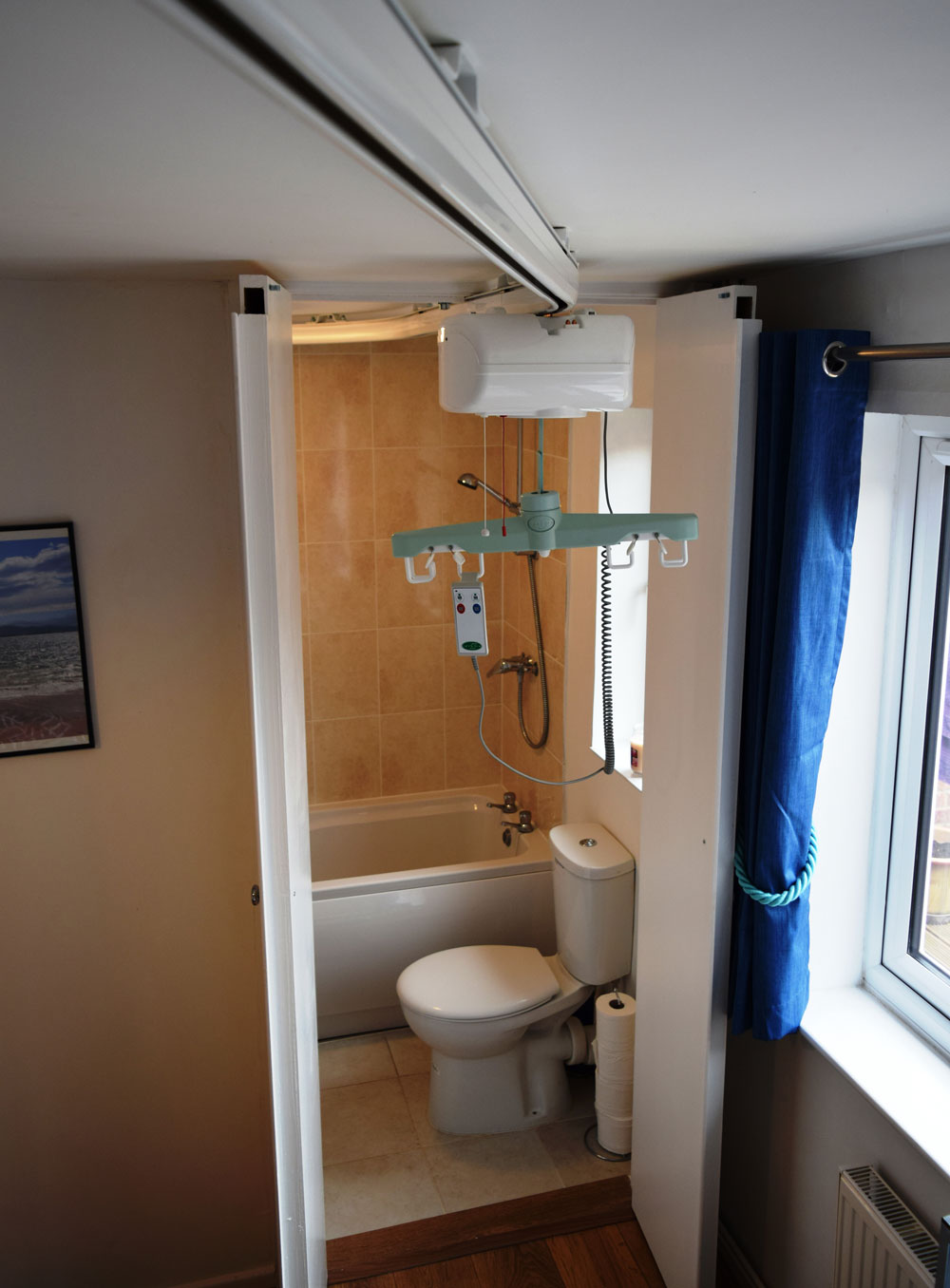Most of my recent experiential posts have been about work, leisure and inclusion for disabled people. I’m all too familiar with the need for accessible housing, care support, and enabling equipment. However once it’s in place, it’s less of a concern.
Recently I moved house. The 1 bed flat was great for a while. Having saved up, a bungalow with a garden offered a better home life. Doubly important as I work from home.
The process was stressful. Estate agents. Mortgage advisers and lenders. Solicitors. Removal company. Builders. Gardeners. Everything people go through regardless of disability. You know what I’m saying!
Then throw in the need for wooden flooring (carpets are a nightmare with muddy wheels). The need for ramps. The need for open space. The need for general accessibility. The need for disability equipment.
In the previous flat I’d had a wetroom shower, manual hoist and shower chair on wheels. So I’d squeeze them in and carefully place everything for my transfers. The transfers between wheelchair, bed, shower chair and so forth. I’d then be pushed from the bedroom to the bathroom.
In the bungalow there was a brand new bathroom with a bath. The cost would have been high to strip it and create a wetroom. Plus the space for the mobile hoist was minimal. So it made sense to explore other options.
Via a Spanish colleague called Jabi in San Sebastian (who designed this hotel room), I was put in contact with Care and Independence in the UK. They had the exact solution for me.
I needed to knock a hole in the wall between the bathroom and the bedroom. So a ceiling hoist could be installed over the bed, toilet, and bath. Negating the need of a manual hoist and shower chair! It was on me to arrange the builder, the electrician, and the bespoke doors (cut around the tracking and ceiling high). Then Care and Independence would sort the tracking hoist.
In sourcing local Cambridgeshire trades people, the preparation was dealt with quickly. The driveway company (I also needed block paving) sorted the hole in the wall. The fascia and soffit guys tailor made the doors. The next door neighbour of my parents prepped the electric needs. Teething problems also required local plumbers, gas safe engineers, and pest control experts.
I was really happy with their helpfulness and quality. You hear nightmare stories, but they were all awesome.
Next up Ben and Pramdip arrived from Care and Independence. They used clever lazers to check the tracking position on the ceiling. They made sure I would land on the bed, the toilet, and in the bath exactly right. They added bends from the original sketches after our discussions. Then they were up in the loft attaching the track safely. It was quite a sight to watch the hoist be installed.
If you want to contact this installation company, I can’t recommend them enough. Checkout their Facebook, Twitter, and LinkedIn anytime.
Having this kind if equipment is so important. People take for granted getting into bed, going on the toilet, having a relaxing bath, and other daily tasks. I’ll always need carers and equipment. But with the right setup I can be just like those people 🙂
So after more than 6 months, the flat is gone, and the bungalow is awesome. It’s exactly as I’d dreamed of. It’s spacious. It’s bright. It’s accessible. It’s ready for new experiences. It’s a machine for making lifelong memories. Most importantly it’s a home for my future children (not that I have news on this topic – just to clarify lol).
Martyn
World Changing Blogger| Author | Facebook | Twitter | Linked In | Google+
CEO and Co-Founder Disability Horizons
Founder Disability United
Co-Founder Accomable




